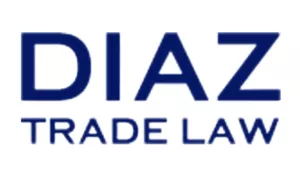Background on Sanctions
US economic and trade sanctions are administered and enforced by the US Treasury Department's Office of Foreign Assets Control (OFAC). OFAC's mission is to administer and enforce US sanctions based on US foreign policy and national security goals against a variety of individuals and entities including:
- Foreign countries and regimes
- Terrorists
- International narcotics traffickers
- Proliferators of weapons of mass destruction
- Other threats to the national security, foreign policy, or economy of the US
At the time of this writing, OFAC's active sanctions programs comprise of list below. An up-to-date list of active sanctions programs can be accessed here.
- Afghanistan-Related Sanctions
- Balkans-Related Sanctions
- Belarus Sanctions
- Burma-Related Sanctions
- Central African Republic Sanctions
- Chinese Military Companies Sanctions
- Countering America's Adversaries Through Sanctions Act-Related Sanctions
- Counter Narcotics Trafficking Sanctions
- Counter Terrorism Sanctions
- Cuba Sanctions
- Cyber-Related Sanctions
- Democratic Republic of the Congo-Related Sanctions
- Ethiopia-Related Sanctions
- Foreign Interference in a US Election Sanctions
- Global Magnitsky Sanctions
- Hong Kong-Related Sanctions
- Hostages and Wrongfully Detained US Nationals Sanctions
- Iran Sanctions
- Iraq-Related Sanctions
- Lebanon-Related Sanctions
- Libya Sanctions
- Magnitsky Sanctions
- Mali-Related Sanctions
- Nicaragua-Related Sanctions
- Non-Proliferation Sanctions
- North Korea Sanctions
- Rough Diamond Trade Controls
- Russian Harmful Foreign Activities Sanctions
- Somalia Sanctions
- Sudan and Darfur Sanctions
- South Sudan-Related Sanctions
- Syria Sanctions
- Syria-Related Sanctions
- Transnational Criminal Organizations
- Ukraine-/Russia-Related Sanctions
- Venezuela-Related Sanctions
- Yemen-Related Sanctions
- Zimbabwe Sanctions
OFAC engages in both licensing and enforcement activities. Below is an overview of both activities.
Licensing
OFAC grants either general or specific licenses authorizing individuals or entities to engage in transactions that would otherwise be prohibited.
- OFAC issues general licenses which authorize a particular type of transaction without the need to apply for a license. For example, Venezuela General License 30A authorizes certain transactions necessary for port and airport operations despite significant broad sanctions applied to the certain agencies within the Venezuelan government.
- On the other hand, OFAC also grants specific licenses, which are issued by OFAC issued to a particular person or entity authorizing a particular transaction in response to a written license application.
Enforcement
OFAC enforces US sanctions laws. OFAC enforcement actions can result in heavy civil penalties and even criminal referral. OFAC's Enforcement Guidelines provide guidance on how OFAC engages in its enforcement actions, including a summary of procedural requirements, how cases are evaluated, how penalties are assessed, and the effect of valid Voluntary Self-Disclosures on penalties. OFAC publishes an up-to-date summary of its enforcement actions on its website. High-profile companies which received civil penalties from OFAC or agreed to settlements with OFAC include American Express National Bank, S&P Global, Inc., and Airbnb Payments, Inc.
OFAC Sanctions Lists
OFAC actively maintains numerous lists identifying individuals and entities which whom individuals and entities subject to OFAC jurisdiction generally must not engage in transactions. Below is a summary of OFAC's numerous lists, their significance, how the lists can be searched, and the process to be removed from these lists.
SDN List
The best known and most important list is the Specially Designated Nationals and Blocked Persons List (SDN List). The SDN List contains thousands of individuals and entities targeted and sanctioned by OFAC. US individuals, US businesses, and other individuals and entities under US jurisdiction are prohibited from doing business with individuals and entities listed on the SDN list. Like all other sanctions lists, the SDN List can be searched using the OFAC's Sanctions Screening List and the US Commerce Department's Consolidating Screening List. See more under Search Engines below.
The following are additional resources pertaining to the SDN List:
- Full List. An actively maintained and searchable SDN List is available here in PDF format and TEXT format
- Roster of Changes. OFAC publishes changes made to the SDN List on a year-to-date basis on its website. The 2022 SDN List changes can be accessed here. A roster of SDN changes in previous years can be accessed here.
- Thematic Breakdowns. SDN Lists sorted by OFAC sanctions programs can be accessed here, and SDN Lists sorted by country can be accessed here.
Other Lists
In additional to the SDN List, OFAC maintains several other lists. Below is a summary of other important lists maintained by OFAC:
- Foreign Sanctions Evaders List (FSE). The FSE List comprises of individuals and entities determined to have:
- Violated, attempted to violate, conspired to violate, or caused a violation of US sanctions concerning Syria or Iran, including sanctions imposed under counter-proliferation or counter-terrorism authorities; or
- Facilitated deceptive transactions for or on behalf of persons subject to US sanctions concerning Syria or Iran, as well as persons owned or controlled by, or acting or purporting to act for or on behalf of, directly or indirectly, such persons.
- Sectoral Sanctions Identifications List (SSI). The SSI List was created to impose costs on Russia for its aggression in Ukraine. As implied by the name, the SSI List targets certain sectors of the Russian economy of key strategic interest.
- List of Foreign Financial Institutions Subject to Correspondent Account or Payable-Through Account Sanctions (CAPTA). The CAPTA List identifies foreign financial institutions that are prohibited or in some way restricting from maintaining a correspondent account or a payable-through account in the United States.
- Non-SDN Palestinian Legislative Council List (PLC). The PLC List authorizes US financial institutions to reject transactions of the Palestinian Legislative Council (PLC) who were elected to the PLC on the party slate of Hamas, or any other Foreign Terrorist Organization, Specially Designated Terrorist, or Specially Designated Global Terrorist, provided that any such individuals are not named on the SDN List.
A consolidated list of all non-SDN individuals and entities is accessible here. A consolidated roster of all sanctioned, blocked, or otherwise designated parties across US federal agencies is accessible via the US Department of Commerce's Consolidated Screening List.
Practice Tip: Additionally, a wide variety of commercially available screening software solutions are available which can be integrated into an ERP system to offer more automated and streamlined solutions-and recordkeeping of your searches. If you are using the Consolidated Screening list as is-without the benefit of a screening software-we encourage users to turn fuzzy search "on" when running queries to ensure that all similarly named individuals/entities come up and to keep a PDF of all search results to prove you truly did the search.
Being Removed from a Sanctions List
The regulations establish a procedure for delisting from the various sanctions lists, e.g., 31 C.F.R. 501.807 for removal from the SDN List. OFAC's stated policy is that "the ultimate goal of sanctions is not to punish, but to bring about a positive change in behavior." Accordingly, each year, OFAC removes hundreds of individuals and entities from the SDN List and other lists. The removal review process is rigorous and petitions for removal are evaluated on a case-by-case basis.
In order to be removed from any OFAC sanctions list, petitioners must write to OFAC and request removal. These petitions for removal can be mailed as hard copies or emailed.
Practice Tip: The appropriate email address at the time of this writing is OFAC.Reconsideration@treasury.gov. For faster processing, we highly recommend submitting electronically via email rather than via hard-copy mail.
Requests for removal from any OFAC sanctions list should include the following key elements:
- The listed person or entity's name and mailing address, and other contact information
- The contact person's (who may be different from the listed person) name and mailing address, and other contact information
- The date of the relevant OFAC listing action
- Request for reconsideration of OFAC's determination, including a detailed description of why the listed person should be removed
According to OFAC, reasons for being removed from a sanctions list include:
- A Positive Change in Behavior
- Death of the listed individual
- The basis for the designation no longer exists
- The designation was based on mistaken identity
Practice Tip: When making a case for removal, we highly recommend that detailed information and clearly organized supporting documentation be provided, to facilitate OFAC's review.
There is no set timeframe for OFAC's review of a petition for removal. OFAC may require additional information, which it requests in the form of questionnaires.
Conclusion
OFAC's sanctions lists can change on a nearly daily basis. Although OFAC administers and enforces numerous lists, OFAC's numerous lists and those of other agencies can be queried via the Consolidated Screening List. Given the fast pace of change, it is essential that US and foreign individuals and entities engaged in international business transactions-and at times even domestic business transactions-regularly confirm that their transactions adhere to US sanctions laws by ensuring that they are not doing business with a sanctioned party.
Originally published by Bloomberg Law.
The content of this article is intended to provide a general guide to the subject matter. Specialist advice should be sought about your specific circumstances.

